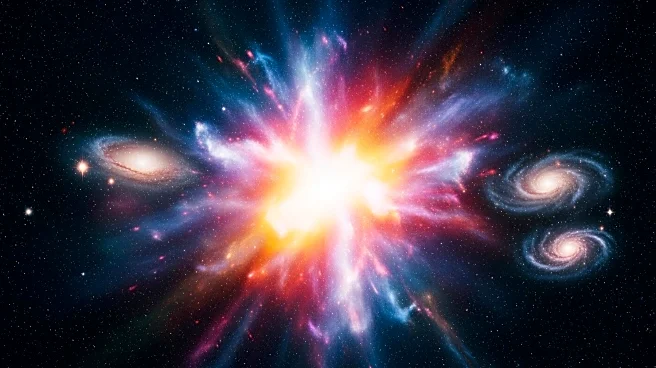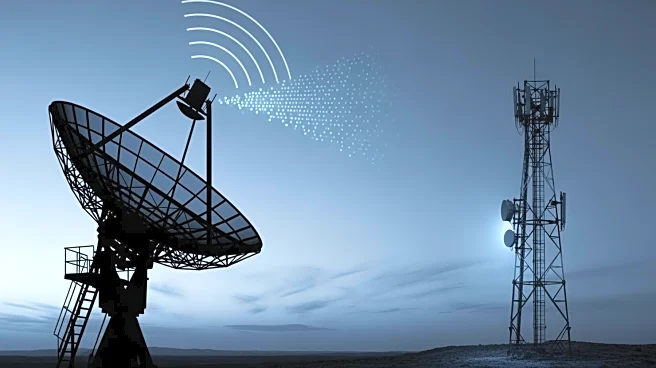What's Happening?
Scientists have introduced a new proposal for the Big Bang Model, suggesting an alternative theory that removes the need for the inflaton particle, traditionally thought to drive the universe's rapid expansion after the Big Bang. Published in the American Physical Society's Physical Review Journal, the study titled 'Inflation without an inflaton' proposes that gravitational waves could explain the formation of matter and structure in the early universe. This new model challenges existing cosmological theories and offers a different perspective on the universe's origins.
Why It's Important?
The proposal has significant implications for cosmology, as it challenges the conventional understanding of the universe's expansion and the role of the inflaton particle. By suggesting gravitational waves as a key factor, the model could lead to new insights into the formation of cosmic structures and the behavior of the universe in its earliest moments. This research may influence future studies in cosmology and astrophysics, potentially leading to revised theories and models that better explain the universe's origins and evolution.
What's Next?
Further research will likely focus on testing the validity of this new model and exploring its implications for cosmology. Scientists may conduct observational studies to detect gravitational waves and analyze their impact on cosmic structures. The model could also inspire new theoretical work aimed at refining our understanding of the universe's expansion and the forces driving it. Collaboration between researchers in cosmology and related fields will be crucial in advancing this line of inquiry.








